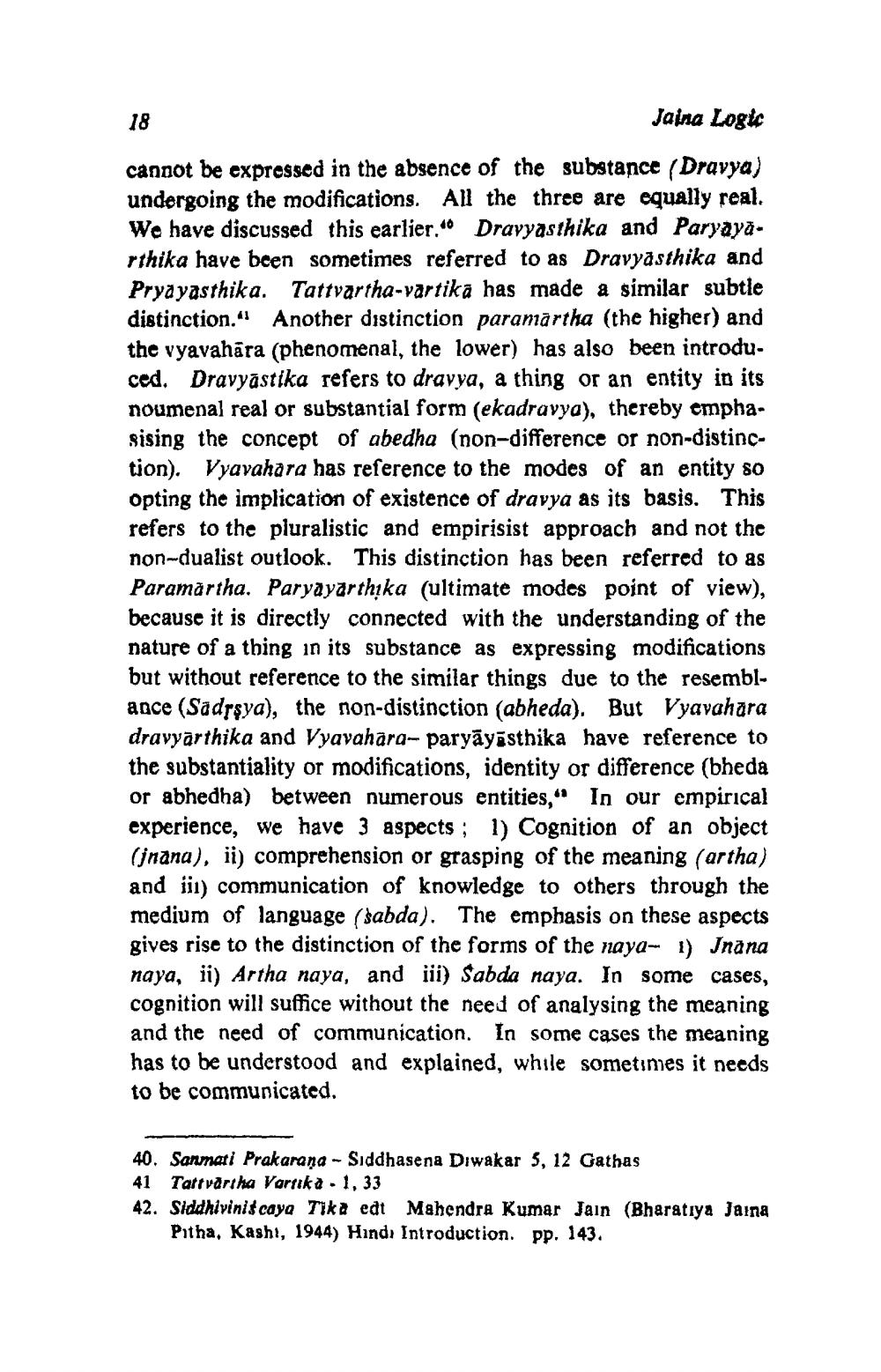________________
Jaina Logic
cannot be expressed in the absence of the substance (Dravya) undergoing the modifications. All the three are equally real. We have discussed this earlier." Dravyasthika and Paryayarthika have been sometimes referred to as Dravyasthika and Pryayasthika. Tattvartha-vartika has made a similar subtle distinction." Another distinction paramartha (the higher) and the vyavahara (phenomenal, the lower) has also been introduced. Dravyāstika refers to dravya, a thing or an entity in its noumenal real or substantial form (ekadravya), thereby emphasising the concept of abedha (non-difference or non-distinction). Vyavahara has reference to the modes of an entity so opting the implication of existence of dravya as its basis. This refers to the pluralistic and empirisist approach and not the non-dualist outlook. This distinction has been referred to as Paramartha. Paryayarthika (ultimate modes point of view), because it is directly connected with the understanding of the nature of a thing in its substance as expressing modifications but without reference to the similar things due to the resemblance (Sadrṣya), the non-distinction (abheda). But Vyavahara dravyarthika and Vyavahara- paryāyāsthika have reference to the substantiality or modifications, identity or difference (bheda or abhedha) between numerous entities," In our empirical experience, we have 3 aspects; 1) Cognition of an object (jnana), ii) comprehension or grasping of the meaning (artha) and ii) communication of knowledge to others through the medium of language (sabda). The emphasis on these aspects gives rise to the distinction of the forms of the naya- 1) Jnana naya, ii) Artha naya, and iii) Sabda naya. In some cases, cognition will suffice without the need of analysing the meaning and the need of communication. In some cases the meaning has to be understood and explained, while sometimes it needs to be communicated.
18
40. Sanmati Prakarana - Siddhasena Diwakar 5, 12 Gathas
41 Tattvärtha Vartika 1, 33
42. Siddhivinis caya Tika edt
Pitha, Kashi, 1944) Hindi Introduction. pp. 143.
Mahendra Kumar Jain (Bharatiya Jana




